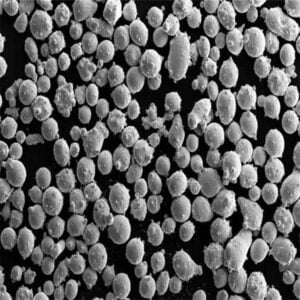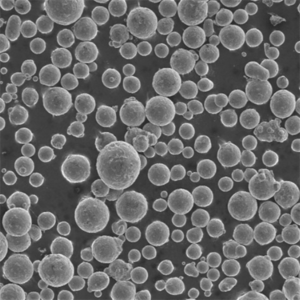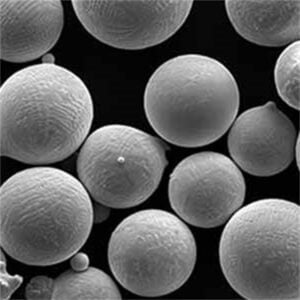Metal Powder for Tooling
Table of Contents
Tooling is an essential aspect of many industries, from automotive to aerospace. The ability to shape, cut, and form metal into specific designs is crucial. One key component in this process is metal powder, a material that has revolutionized how tooling is done. This article dives deep into the world of metal powder for tooling, offering an exhaustive overview of different types, their compositions, properties, and much more. So, let’s get started!
Overview of Metal Powder for Tooling
Metal powders are finely divided solid materials used in various manufacturing processes. These powders are essential in tooling because they can be molded and fused into intricate shapes that are otherwise difficult to achieve with bulk metals. The tooling industry has benefited immensely from the development of high-quality metal powders that offer exceptional strength, durability, and precision.
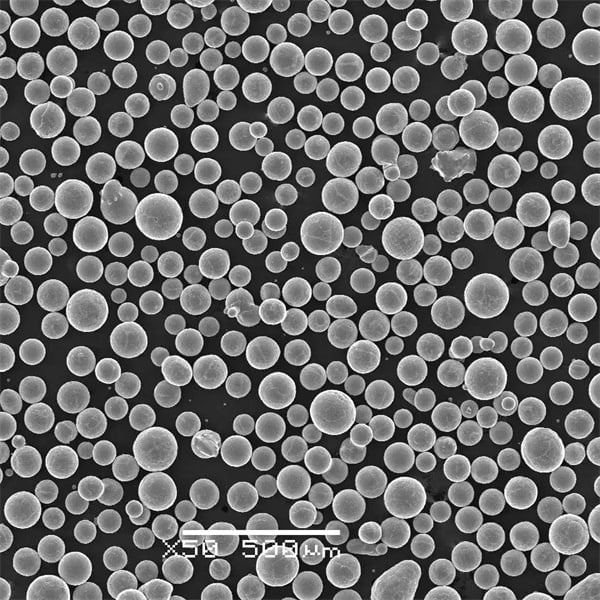
Types and Characteristics of Metal Powder for Tooling
Here are some specific metal powder models commonly used in tooling, each with unique characteristics:
- 316L Stainless Steel Powder
- Composition: Iron, Chromium, Nickel, Molybdenum
- Properties: Excellent corrosion resistance, good formability, non-magnetic
- Characteristics: Used in marine and pharmaceutical industries due to its resistance to chlorides and acids.
- 17-4 PH Stainless Steel Powder
- Composition: Iron, Chromium, Nickel, Copper
- Properties: High strength and hardness, good corrosion resistance
- Characteristics: Ideal for aerospace, chemical, and petrochemical applications.
- Inconel 718 Powder
- Composition: Nickel, Chromium, Iron, Niobium, Molybdenum
- Properties: High tensile strength, excellent fatigue and creep resistance
- Characteristics: Perfect for high-temperature applications like gas turbines and nuclear reactors.
- Titanium Ti-6Al-4V Powder
- Composition: Titanium, Aluminum, Vanadium
- Properties: High strength-to-weight ratio, excellent corrosion resistance
- Characteristics: Commonly used in aerospace, medical implants, and automotive components.
- Cobalt-Chrome Powder
- Composition: Cobalt, Chromium, Molybdenum
- Properties: Superior wear resistance, high strength, biocompatible
- Characteristics: Used in dental implants, orthopedic implants, and aerospace components.
- Copper Powder
- Composition: Pure Copper
- Properties: Excellent thermal and electrical conductivity, good corrosion resistance
- Characteristics: Used in electrical components, heat exchangers, and automotive parts.
- Aluminum AlSi10Mg Powder
- Composition: Aluminum, Silicon, Magnesium
- Properties: Lightweight, good thermal properties, high strength
- Characteristics: Ideal for automotive and aerospace components, and lightweight structures.
- H13 Tool Steel Powder
- Composition: Iron, Chromium, Molybdenum, Vanadium
- Properties: High toughness, good wear resistance, high-temperature stability
- Characteristics: Used in die-casting, extrusion, and hot forging tools.
- Tungsten Carbide Powder
- Composition: Tungsten, Carbon
- Properties: Extremely hard, excellent wear resistance, high melting point
- Characteristics: Used in cutting tools, mining equipment, and wear-resistant parts.
- Maraging Steel Powder
- Composition: Iron, Nickel, Cobalt, Molybdenum, Titanium
- Properties: Ultra-high strength, good toughness, minimal distortion during heat treatment
- Characteristics: Perfect for aerospace, tooling, and high-stress components.
Composition of Metal Powder for Tooling
The composition of metal powder plays a critical role in determining its properties and suitability for specific tooling applications. Here’s a detailed table of compositions for some of the most commonly used metal powders:
| Metal Powder | Key Elements | Composition (%) |
|---|---|---|
| 316L Stainless Steel | Fe, Cr, Ni, Mo | Fe: 65-70, Cr: 16-18, Ni: 10-14, Mo: 2-3 |
| 17-4 PH Stainless Steel | Fe, Cr, Ni, Cu | Fe: 65-70, Cr: 15-17.5, Ni: 3-5, Cu: 3-5 |
| Inconel 718 | Ni, Cr, Fe, Nb, Mo | Ni: 50-55, Cr: 17-21, Fe: 17-21, Nb: 4.75-5.5, Mo: 2.8-3.3 |
| Titanium Ti-6Al-4V | Ti, Al, V | Ti: 88-90, Al: 5.5-6.75, V: 3.5-4.5 |
| Cobalt-Chrome | Co, Cr, Mo | Co: 60-65, Cr: 26-30, Mo: 5-7 |
| Copper | Cu | Cu: 99.9+ |
| Aluminum AlSi10Mg | Al, Si, Mg | Al: 85-90, Si: 9-11, Mg: 0.2-0.4 |
| H13 Tool Steel | Fe, Cr, Mo, V | Fe: 85-90, Cr: 4.75-5.5, Mo: 1.1-1.75, V: 0.8-1.2 |
| Tungsten Carbide | W, C | W: 80-97, C: 3-20 |
| Maraging Steel | Fe, Ni, Co, Mo, Ti | Fe: 60-65, Ni: 18-19, Co: 8-10, Mo: 4.6-5.2, Ti: 0.15-0.2 |
Properties of Metal Powder for Tooling
Each type of metal powder comes with its own set of properties that make it suitable for specific tooling applications. Understanding these properties can help in selecting the right material for the job.
| Metal Powder | Strength | Hardness | Corrosion Resistance | Thermal Conductivity | Density (g/cm³) |
|---|---|---|---|---|---|
| 316L Stainless Steel | High | Medium | Excellent | Medium | 7.9 |
| 17-4 PH Stainless Steel | Very High | High | Good | Medium | 7.75 |
| Inconel 718 | Very High | High | Excellent | Low | 8.19 |
| Titanium Ti-6Al-4V | High | Medium | Excellent | Medium | 4.43 |
| Cobalt-Chrome | High | Very High | Excellent | Medium | 8.3 |
| Copper | Medium | Low | Good | Excellent | 8.96 |
| Aluminum AlSi10Mg | Medium | Low | Good | High | 2.7 |
| H13 Tool Steel | High | High | Medium | Medium | 7.8 |
| Tungsten Carbide | Extremely High | Extremely High | Good | Low | 15.7 |
| Maraging Steel | Ultra-High | High | Medium | Medium | 8.0 |
Applications of Metal Powder for Tooling
Metal powders find applications in a variety of industries. Here’s a breakdown of some key uses:
| Industry | Metal Powder | Application |
|---|---|---|
| Aerospace | Titanium Ti-6Al-4V, Inconel 718 | Jet engine components, structural parts |
| Automotive | Aluminum AlSi10Mg, Copper | Engine parts, heat exchangers, electrical components |
| Medical | Cobalt-Chrome, Titanium Ti-6Al-4V | Implants, surgical tools |
| Electronics | Copper, Aluminum AlSi10Mg | Conductive components, heat sinks |
| Tool and Die Making | H13 Tool Steel, Tungsten Carbide | Molds, dies, cutting tools |
| Energy | Inconel 718, Maraging Steel | Turbine blades, power generation equipment |
| Dental | Cobalt-Chrome, Titanium Ti-6Al-4V | Dental implants, orthodontic appliances |
| General Manufacturing | 316L Stainless Steel, 17-4 PH Stainless Steel | Fasteners, industrial machinery components |
Specifications, Sizes, Grades, and Standards of Metal Powder for Tooling
Specifications and standards ensure that the metal powders meet the required quality and performance levels for tooling applications.
| Metal Powder | Specifications | Sizes (µm) | Grades | Standards |
|---|---|---|---|---|
| 316L Stainless Steel | ASTM A276, ASTM F138 | 15-45, 45-105 | 316L, 316LS | ASTM, ISO 5832-1 |
| 17-4 PH Stainless Steel | AMS 5643, ASTM A693 | 15-45, 45-105 | 17-4 PH | ASTM, AMS |
| Inconel 718 | AMS 5662, ASTM B637 | 15-45, 45-105 | 718 | AMS, ASTM, ISO |
| Titanium Ti-6Al-4V | ASTM B348, AMS 4911 | 15-45, 45-105 | Grade 5, Grade 23 | ASTM, AMS, ISO 5832-3 |
| Cobalt-Chrome | ASTM F75, ASTM F1537 | 15-45, 45-105 | CoCrMo, CoCrW | ASTM, ISO |
| Copper | ASTM B213, ASTM B124 | 15-45, 45-105 | ETP, OFHC | ASTM |
| Aluminum AlSi10Mg | ASTM B209, ASTM B247 | 15-45, 45-105 | AlSi10Mg, AlSi12 | ASTM, ISO |
| H13 Tool Steel | ASTM A681, AMS 6487 | 15-45, 45-105 | H13 | ASTM, AMS |
| Tungsten Carbide | ASTM B777, ISO 3325 | 15-45, 45-105 | WC-Co | ASTM, ISO |
| Maraging Steel | AMS 6514, ASTM A538 | 15-45, 45-105 | 18Ni(300), C300 | AMS, ASTM |
Suppliers and Pricing Details of Metal Powder for Tooling
Here’s a list of suppliers along with pricing details for different metal powders.
| Supplier | Metal Powder | Price (USD/kg) | Bulk Discount | Contact Information |
|---|---|---|---|---|
| Carpenter Technology | 316L Stainless Steel | 30-40 | Yes | www.carpentertech.com |
| Höganäs AB | 17-4 PH Stainless Steel | 35-45 | Yes | www.hoganas.com |
| Sandvik Materials | Inconel 718 | 100-150 | Yes | www.materials.sandvik |
| ATI Metals | Titanium Ti-6Al-4V | 200-250 | Yes | www.atimetals.com |
| Praxair Surface Technologies | Cobalt-Chrome | 150-200 | Yes | www.praxairsurfacetechnologies.com |
| American Elements | Copper | 20-25 | Yes | www.americanelements.com |
| ECKART GmbH | Aluminum AlSi10Mg | 30-35 | Yes | www.eckart.net |
| Kennametal | H13 Tool Steel | 50-60 | Yes | www.kennametal.com |
| Global Tungsten & Powders | Tungsten Carbide | 80-100 | Yes | www.globaltungsten.com |
| H.C. Starck Solutions | Maraging Steel | 70-90 | Yes | www.hcstarck.com |
Comparing Pros and Cons of Metal Powders for Tooling
Each metal powder has its own set of advantages and limitations. Here’s a comparative analysis:
| Metal Powder | Advantages | Limitations |
|---|---|---|
| 316L Stainless Steel | Excellent corrosion resistance, biocompatible | Medium strength and hardness |
| 17-4 PH Stainless Steel | High strength and hardness, good corrosion resistance | More expensive than 316L |
| Inconel 718 | High temperature stability, excellent strength | Very expensive, difficult to machine |
| Titanium Ti-6Al-4V | High strength-to-weight ratio, excellent biocompatibility | Expensive, challenging to process |
| Cobalt-Chrome | Superior wear resistance, high strength, biocompatible | Expensive, hard to machine |
| Copper | Excellent thermal and electrical conductivity, relatively inexpensive | Low strength, prone to oxidation |
| Aluminum AlSi10Mg | Lightweight, good thermal properties | Lower strength compared to steel and titanium |
| H13 Tool Steel | High toughness and wear resistance, suitable for high-temperature applications | Prone to corrosion without coating |
| Tungsten Carbide | Extremely hard, excellent wear resistance | Very brittle, expensive |
| Maraging Steel | Ultra-high strength, good toughness | High cost, limited corrosion resistance |
Detailed Look at Specific Metal Powders
316L Stainless Steel Powder
316L stainless steel powder is renowned for its excellent corrosion resistance, making it a top choice for applications in harsh environments. This powder is particularly favored in marine and pharmaceutical industries. Its low carbon content enhances its resistance to intergranular corrosion. This metal powder is non-magnetic in the annealed condition and exhibits good weldability.
17-4 PH Stainless Steel Powder
17-4 PH stainless steel powder is a martensitic precipitation-hardening stainless steel that combines high strength and hardness with good corrosion resistance. It is commonly used in aerospace, chemical, and petrochemical industries. Its ability to be heat treated to various strength levels adds to its versatility.
Inconel 718 Powder
Inconel 718 is a nickel-chromium alloy known for its high strength, excellent fatigue, and creep resistance at high temperatures. This makes it ideal for high-temperature applications such as gas turbines and nuclear reactors. The powder form allows for the creation of complex shapes that are essential for these demanding environments.
Titanium Ti-6Al-4V Powder
Titanium Ti-6Al-4V, also known as Grade 5 titanium, is the most widely used titanium alloy. It offers an excellent combination of strength, light weight, and corrosion resistance. Its biocompatibility makes it suitable for medical implants, while its high strength-to-weight ratio is perfect for aerospace applications.
Cobalt-Chrome Powder
Cobalt-chrome alloys are known for their superior wear resistance, high strength, and excellent biocompatibility. These properties make cobalt-chrome powder a preferred material for dental and orthopedic implants, as well as high-performance aerospace components.
Copper Powder
Copper powder is prized for its excellent thermal and electrical conductivity. It is widely used in electrical components, heat exchangers, and automotive parts. Its relatively low cost and good corrosion resistance add to its appeal.
Aluminum AlSi10Mg Powder
AlSi10Mg is an aluminum alloy powder that combines light weight with good mechanical properties. It is often used in the automotive and aerospace industries for components that require high strength and light weight. Its good thermal conductivity makes it suitable for applications where heat dissipation is important.
H13 Tool Steel Powder
H13 tool steel powder is known for its high toughness, good wear resistance, and stability at high temperatures. These properties make it an excellent choice for die-casting, extrusion, and hot forging tools. However, it requires protective coatings to prevent corrosion.
Tungsten Carbide Powder
Tungsten carbide powder is one of the hardest materials available, offering exceptional wear resistance and high temperature stability. It is used in cutting tools, mining equipment, and wear-resistant parts. However, its brittleness and high cost can be limiting factors.
Maraging Steel Powder
Maraging steel powder, such as 18Ni(300), offers ultra-high strength and good toughness. It is used in aerospace and tooling applications where high stress resistance is required. However, it is expensive and has limited corrosion resistance compared to other materials.
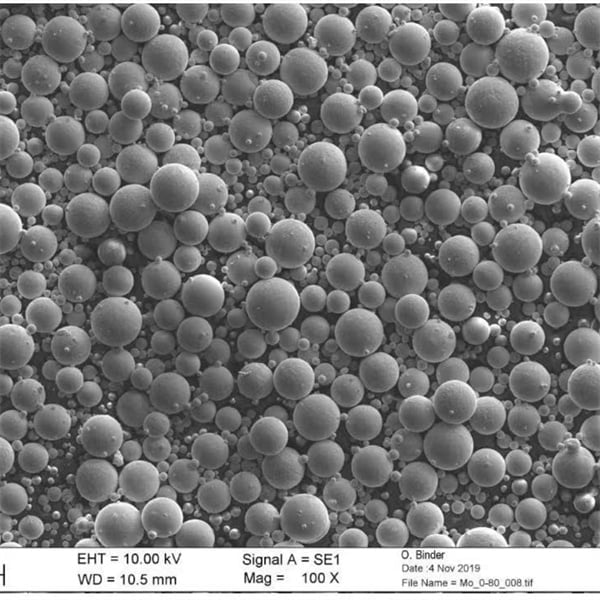
FAQ
| Question | Answer |
|---|---|
| What is metal powder used for in tooling? | Metal powder is used to create intricate shapes and high-precision tools that are difficult to make with bulk metals. |
| Why is 316L stainless steel popular in tooling? | 316L stainless steel is popular due to its excellent corrosion resistance and good formability. |
| How is metal powder manufactured? | Metal powder is typically produced through atomization, where molten metal is turned into fine particles. |
| What are the advantages of using metal powder for tooling? | Metal powders allow for precise control over the material properties, enabling the production of complex shapes and high-strength components. |
| Is titanium Ti-6Al-4V suitable for medical implants? | Yes, titanium Ti-6Al-4V is biocompatible and commonly used for medical implants. |
| How does Inconel 718 perform in high-temperature environments? | Inconel 718 has excellent high-temperature stability and is used in applications such as gas turbines and nuclear reactors. |
| Can metal powders be recycled? | Yes, metal powders can often be recycled, reducing waste and environmental impact. |
Share On
MET3DP Technology Co., LTD is a leading provider of additive manufacturing solutions headquartered in Qingdao, China. Our company specializes in 3D printing equipment and high-performance metal powders for industrial applications.
Inquiry to get best price and customized Solution for your business!
Related Articles
About Met3DP
Recent Update
Our Product
CONTACT US
Any questions? Send us message now! We’ll serve your request with a whole team after receiving your message.

Metal Powders for 3D Printing and Additive Manufacturing
COMPANY
PRODUCT
cONTACT INFO
- Qingdao City, Shandong, China
- [email protected]
- [email protected]
- +86 19116340731







